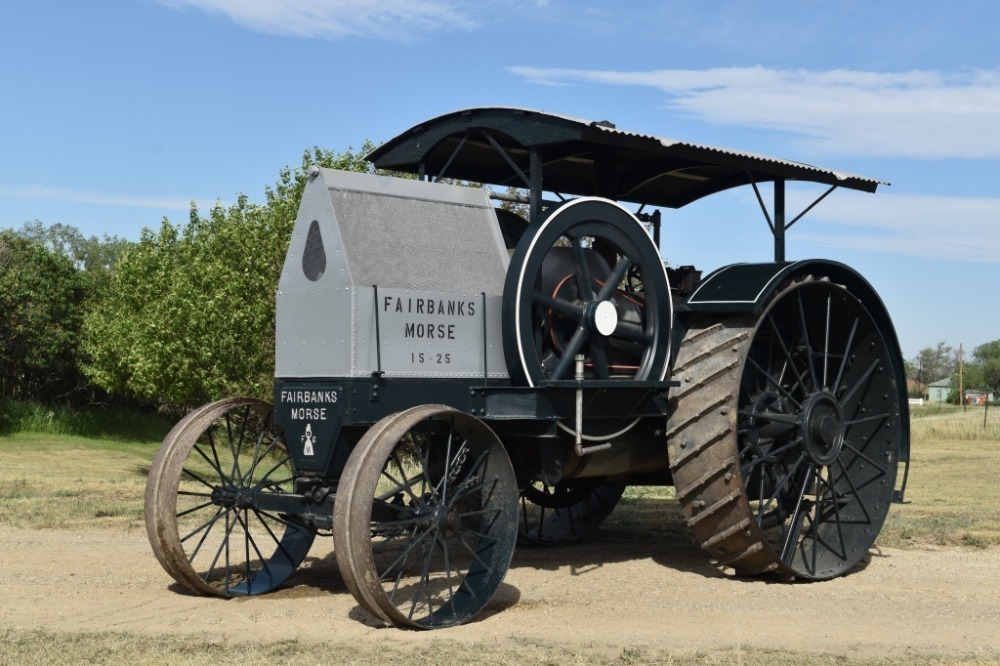add/remove from wishlist - view your list
Model Information
1911-1915
The 15-25 Fairbanks-Morse of 1911 used an engine similar to their 25-horsepower stationary model. It was of single cylinder design, volume governed, and used low-tension ignition and a mechanical igniter. Even though it had but one cylinder, the exceptionally heavy flywheels made it a smooth running tractor, and a great many were sold for threshing and other farm uses. These engines used an air pump to bring up the cylinder pressure, and just when the flywheels started to turn, the operator actuated a match starting device. It used a wooden kitchen match that could be ignited from without the cylinder. If everything went as planned, the engine would be off and running. In 1912, the engine speed was increased slightly, and the tractor was re-rated at 15-30.
By about 1913, Fairbanks-Morse improved the 15-25 by adding fenders and making a few other small revisions. The big one-cylinder engine had quite a bark and could be heard for miles around. Bore was 1054 inches with an 18-inch stroke — operating speed was 250 RPM. Rugged design was an important feature — from the 72 inch drive wheels down to the 4-inch rear axle. Weight was about 8 tons. Canadian Fairbanks had entered the 15-25 in the 1908 Winnipeg competition, but none were sold in the United States until 1911. U.S. production ended in 1914, and in Canada they were not built after 1915.
Power Train & Specs
Engine: Fairbanks
Cylinders: 1
Bore & Stroke: 10 1/2 x 18
RPM: 250
CID:
Fuel:
Main Fuel Tank Cap:
Aux Fuel Tank Cap:
Carburetor:
Cooling Capacity:
Drawbar HP: 15
Belt PTO HP: 25
Weight: 16,000 lbs
Length:
Width:
Number of Gears:
Content contributed by:




